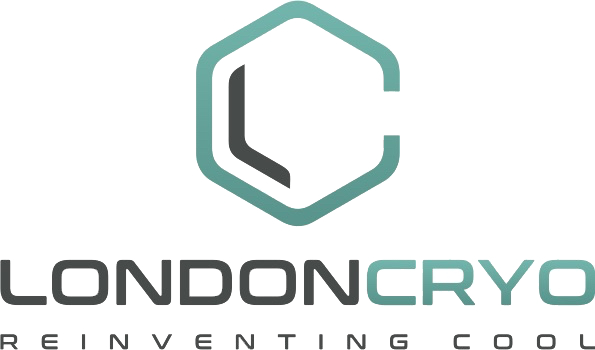Cold Therapy for Your Brain: How Cold Can Help You Think Better, Sleep Better & Live Longer
Cryotherapy helps the body relax completely by cooling it thus triggering the production and release of endorphins, adrenaline and other hormones that affect mood and body function. Most people who struggle with insomnia do so due to inadequate supply of hormones to help trigger the cognitive function of sleeping. Other people may be under pressure, pain and other stressors that can affect muscle relaxation thus making it hard for them to fall asleep.
Nothing hurts like having a long night of turning and tossing in bed without sleep, this makes us overthink a lot of issues. Unfortunately, when the body is not well rested a person can hardly make it through the next day due to fatigue. Cryotherapy soothes the body with ultra-cold temperatures this triggers the body to secrete and release hormones that affect daily functions and sleep (Peake, 2017). Relaxed muscles are essential for one to sleep well. Most people who have undergone cryotherapy agree that it improved their quality of sleep.
Studies have shown that people who suffer from sleep problems, anxiety and depression can be greatly helped by cryotherapy. At a time when mental health issues are on the increase it is time to look for additional therapies to support people alongside counselling and other initiatives.
The charity MIND has stated that in England 1 in 4 people will face a mental health challenge each year and that 1 in six people experience every week mental health problems like depression and anxiety. The ONS published last year its annual data that showed male suicide rates remain the highest they have been since 2000.
Sadly, COVID-19 and the repeated lockdowns this has caused even more challenges for people of all ages and backgrounds.
Medical management consists of various types of therapy, medication and complimentary therapy, however often people are slow to receive these either due to waiting lists or because people are unaware of the problems they are having or don’t want to address the issues they have (Andrade, et al., 2013).
Could Whole Body Cryotherapy form part of the answer for people looking for supportive therapies to their other treatments?
One study has revealed that Whole Body Cryotherapy induced relaxation, mood elevation, memory enhancement, a significant decrease in tension and fatigue and a boost in energy levels (Rymaszewska, Bialy, Zagrobelny, & Kiejna, 2000). It’s also been shown that just 15 sessions of Whole Body Cryotherapy can actually reduce symptoms of both depression and anxiety (Rymaszewska, Ramsey, Chładzińska-Kiejna, & Kiejna, 2007).
It is clear that cryotherapy can be hugely beneficial in improving general wellbeing. Whole Body Cryotherapy has an impact on the hypothalamic-pituitary axis and monoamine regulation (important for controlling stress), increased beta-endorphin levels (for positive mood) and hippocampal brain-derived neurotrophic factor normalisation (for promoting the survival of nerve cells) (Rymaszewska, Ramsey, & Chładzińska-Kiejna, 2008).
In essence, the body becomes able to deal with stressful situations through behavioural changes such as improved cognition, euphoria, and enhanced analgesia (Smith & Vale, 2006). It also improves cognition, complex behaviours, learning and memory - providing notable benefits on mental health conditions (Lu, Naggapan, & Lu, 2014).
A study from 2008 (Rymaszewska, Ramsey, & Chładzińska-Kiejna ) also showed that Whole Body Cryotherapy can help to promote sleep in people with insomnia through the regulation of monoamine neurotransmitters.
Monoamine neurotransmitters play a major role in the regulation of sleep-wake cycle. Hence, an imbalance in these neurotransmitters can result in the disruption of a good sleep (Hurd, 2011).
It is clear that Whole Body Cryotherapy is an interesting and complimentary treatment alongside traditional mental health therapies.
It provides immediate energy-boosting and mood-enhancing feelings. At LondonCryo were also ensure it is provided in a relaxing setting, too to ensure you get the very best from your time with us.
If you would like to try cryotherapy as a way of helping you with your mental health, don’t hesitate to get in touch.
Our Cryotherapy service as well as infrared saunas and lymphatic drainage, red light photobiomodulation therapy, compression therapy, Cryofacials, slimming, toning and double chin services, Hyperbaric Oxygen Therapy and IV drips are all available to book in our locations – LondonCryo City (located in Liverpool Street) and LondonCryo Belgravia (situated near the suburbs of Chelsea) and St Johns Wood High Street, St Johns Wood.
#londoncryo #reinventingcool
Biblography:
• Anxiety and Depression Association of America. (2016, August). Retrieved August 25, 2016, from Anxiety and Depression Association of America: https://www.adaa.org/about-adaa/press-room/facts-statistics
• Hurd, R. (2011, March 23). Retrieved August 26, 2016, from Livestrong: http://www.livestrong.com/article/136959-how-does-serotonin-affect-sleep/
• Mayo Clinic. (2014, April 4). Retrieved August 26, 2016, from Mayo Clinic: http://www.mayoclinic.org/diseases-conditions/insomnia/basics/causes/con-20024293
• National Institute of Mental Health. (2015). Retrieved August 25, 2016, from National Institute of Mental Health: http://www.nimh.nih.gov/health/statistics/prevalence/major-depression-with-severe-impairment-among-adults.html
• Rymaszewska, J., Bialy, D., Zagrobelny, Z., & Kiejna, A. (2000). The influence of wholebody cryotherapy on mental health. . Psychiatria Polska , 649 – 653.
• Rymaszewska, J., Ramsey, D., & Chładzińska-Kiejna, S. (2008). Whole-body cryotherapy as adjunct treatment of depressive and anxiety disorders ArchivumImmunologiae et Therapia Experimentalis, 63 – 68.

